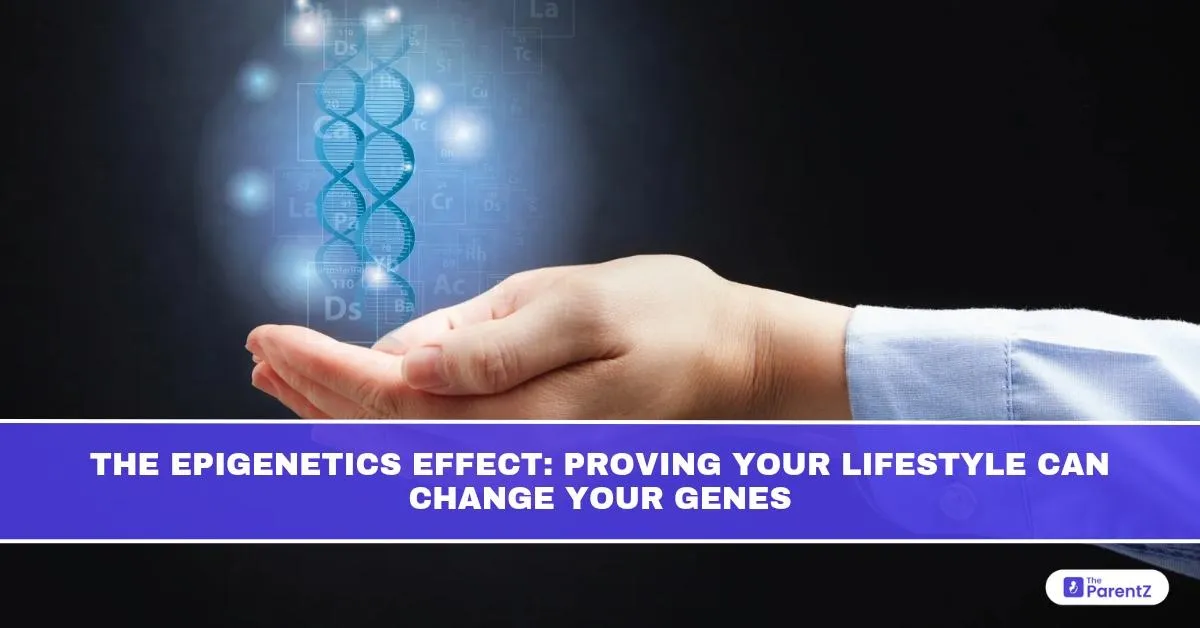Welcome to epigenetics, the groundbreaking field that shows your lifestyle can influence how your genes behave, without changing your DNA sequence.
In simple terms, your choices can turn certain genes on or off, affecting your risk of illness, your rate of aging, and even your mental well-being.
What is Epigenetics?
Epigenetics means “above the genes.” It refers to chemical tags that sit on top of your DNA and control which genes get expressed (activated) and which stay silent.
Think of your genes as the hardware of a computer. Epigenetics is the software that tells it what to do. You inherit your genetic code, but you shape how it’s used—through food, stress levels, sleep, environment, and even your thoughts.
These gene switches are influenced by:
- Diet
- Exercise
- Sleep
- Toxins
- Stress and trauma
- Relationships
- Breathing patterns
How Epigenetics Works
Your DNA is wrapped around proteins called histones. Epigenetic changes include:
- DNA Methylation – Tags added to DNA to silence or activate genes
- Histone Modification – Changes how tightly DNA is wound; tighter winding = less expression
- Non-coding RNAs – Small molecules that regulate gene expression indirectly
These changes don’t alter the DNA code but can be passed to future generations; this is called transgenerational epigenetic inheritance.
Real Examples of Epigenetic Change
- Children born during the Dutch Famine (1944) had higher rates of obesity and heart disease, showing how their mothers’ nutrition affected gene expression for life.
- Meditation and yoga have been shown to downregulate inflammatory genes.
- Exercise can switch on genes that support fat-burning, muscle repair, and brain health.
Even identical twins who share 100% of their DNA show different gene expressions as they grow older based on their individual lifestyles.
The Lifestyle–Gene Connection: What You Can Do
1. Eat to Support Genetic Expression
Foods that support methylation and histone repair:
- Leafy greens (spinach, kale, methi)
- Cruciferous vegetables (broccoli, cabbage)
- Turmeric (natural anti-inflammatory)
- Flaxseeds and walnuts (omega-3s)
- Berries, garlic, onions, green tea
Avoid:
- Processed sugars
- Excess alcohol
- Artificial additives and seed oils
Your plate is powerful. What you eat sends signals to your genes.
2. Sleep as a Genetic Reset Button
Sleep repairs damaged DNA and supports proper methylation.
Tips:
- Maintain a regular sleep schedule (10 PM–6 AM is ideal)
- Keep screens off at least 1 hour before bed
- Sleep in a dark, cool room
Lack of sleep has been linked to upregulation of stress-related genes and inflammation.
3. Move Your Body, Activate Your Health Genes
Regular exercise switches on genes related to:
- Fat metabolism
- Insulin sensitivity
- Brain-derived neurotrophic factor (BDNF), which supports brain function
Try:
- 30–45 minutes of brisk walking or strength training
- Yoga or functional movement for flexibility and cortisol balance
4. Manage Stress to Prevent Genetic Damage
Chronic stress leads to epigenetic activation of inflammatory and disease-related genes.
Daily stress regulation habits:
- Deep breathing or pranayama
- Meditation
- Journaling
- Gratitude practice
- Time in nature
Mind-body practices like yoga are now proven to create favorable epigenetic changes, especially for inflammation, aging, and mental health.
5. Avoid Toxins That Alter Your Gene Expression
Toxins like pesticides, heavy metals, cigarette smoke, and even household cleaners can leave harmful epigenetic marks.
What you can do:
- Choose organic where possible
- Use natural cleaners (vinegar, baking soda)
- Avoid plastic containers and microwave-safe plastics
- Drink filtered water
The Promise of Epigenetics in Medicine
Epigenetic therapies are being explored for cancer, autoimmune disorders, and mental health. Some medications aim to reprogram faulty gene expression rather than just suppress symptoms.
Researchers are also exploring personalized nutrition and fitness plans based on epigenetic profiles, making “bio-individual” health care a real possibility.
Key Scientific Studies
- Harvard Medical School (2022): Meditation was shown to downregulate pro-inflammatory genes in just 8 weeks.
- Nature Reviews Genetics (2023): Exercise reshapes the epigenome and reduces risk of metabolic syndrome.
- Cell Reports (2020): Diet-induced epigenetic changes could be reversed with lifestyle modifications.
Final Thoughts
Your DNA is not a sentence, it’s a script. And you are the editor.
Epigenetics proves that you are not helpless in front of your genes. By making intentional lifestyle choices, you can shape how your body heals, ages, and thrives. The future of medicine is not just in pills, it’s in how we live, eat, move, and think. You have more control over your health than you ever imagined.








Be the first one to comment on this story.